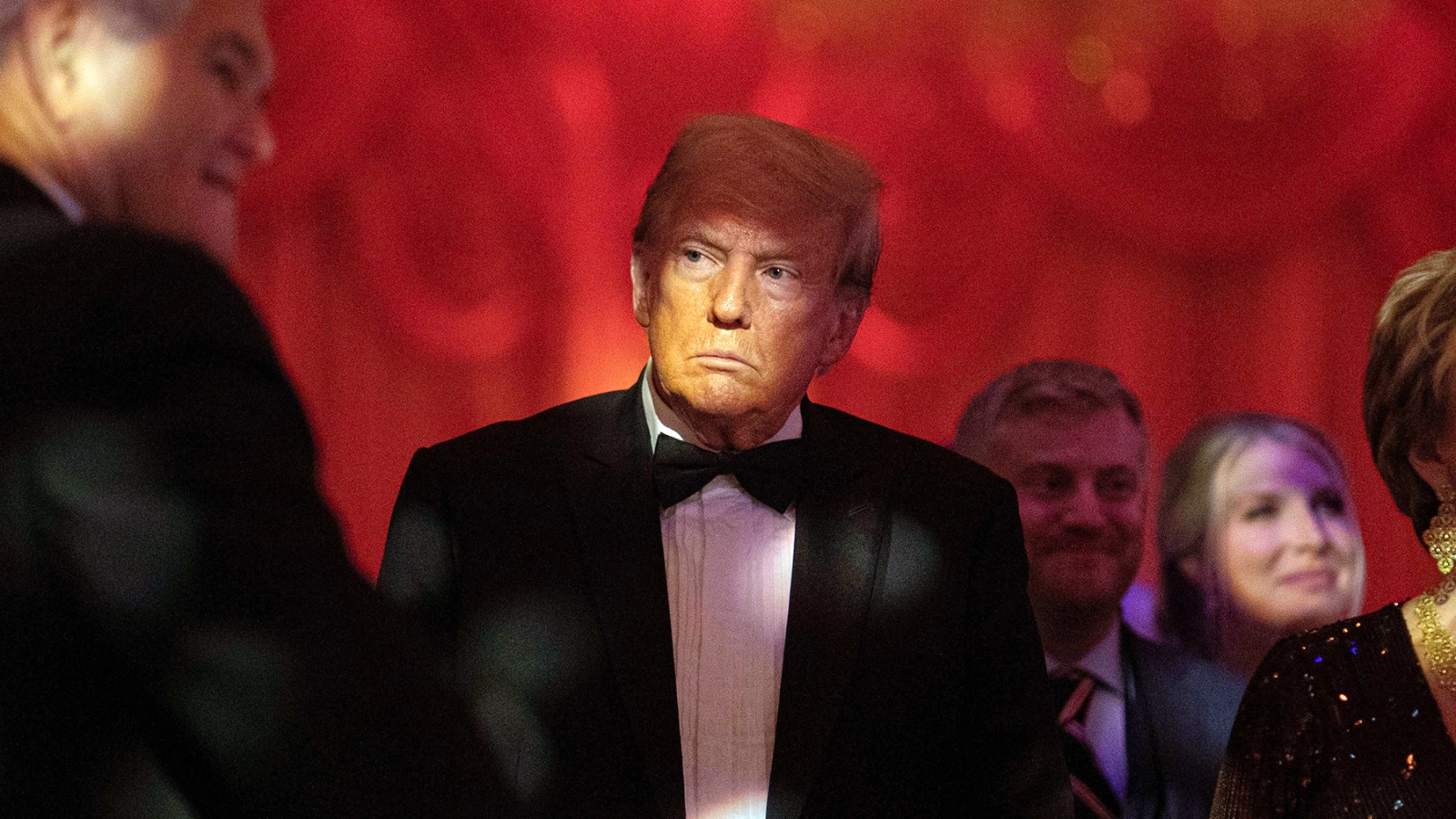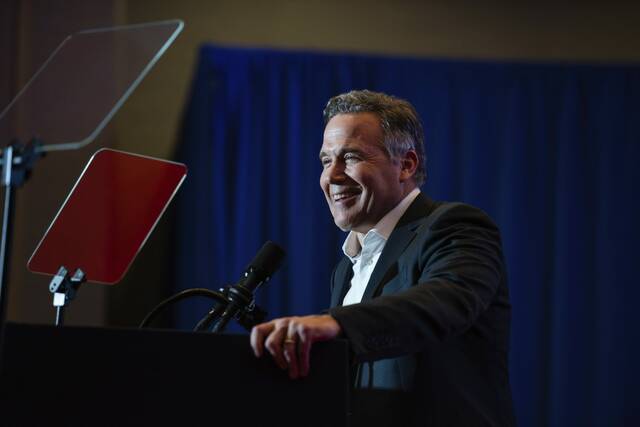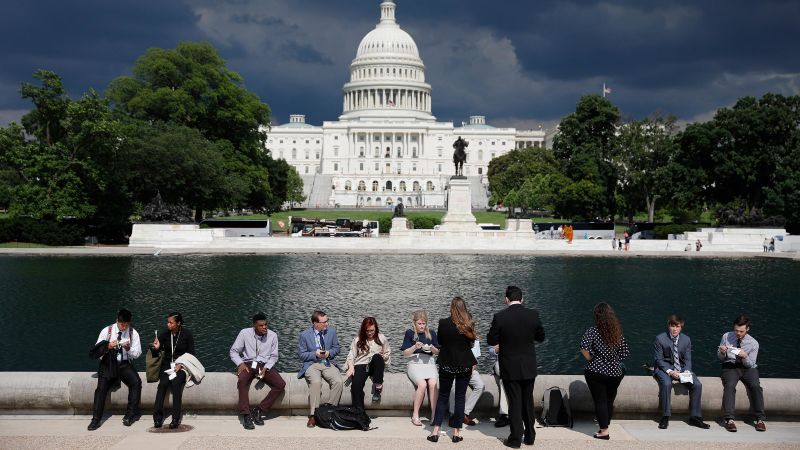In the highly tumultuous closing days of Donald Trump’s first term in office, BuzzFeed News received an angry letter from his outgoing administration. The subpoena, issued on December 1, 2020, was delivered as Trump was preoccupied with efforts to overturn the democratic order and nullify the results of the presidential election he had just lost to Joe Biden.
As BuzzFeed reported at the time, “Immigration and Customs Enforcement investigators issued a subpoena this week demanding BuzzFeed News identify its sources — an extraordinary attempt by the government to interfere with a news outlet acting under the protections of the First Amendment, and a move that the agency’s former chief lambasted as ‘embarrassing.’”
The aggressive letter from the Trump-era ICE read: “Failure to comply with this summons will render you liable to proceedings in a U.S. District Court to enforce compliance with this summons as well as other sanctions.” It added, “You are requested not to disclose the existence of this summons for an indefinite period of time. Any such disclosure will impede this investigation and thereby interfere with the enforcement of federal law.”
To many media and political observers — including officials who served in the Trump administration who were aware of the document at the time — the subpoena wasn’t worth the price of the paper on which it was printed. It was a temper tantrum, not a real legal threat. For starters, Trump and his officials would be out of a job in less than two months. There wasn’t much will, much less the time, within the federal government to make good on this threat to an investigative reporter, his sources, and his publication. There wasn’t even a chilling effect, per se, because their guy had failed at winning reelection.
That was then.
Now, after vanquishing Vice President Kamala Harris in the 2024 election, Trump and his team have four more years to try to intimidate and target leakers, whistleblowers, and foes in the media — especially if situations involve what they claim is highly sensitive information or classified intel. They intend to use the opportunity.
In reporting this story, Rolling Stone spoke with attorneys close to the president-elect, incoming Trump administration officials, and other Republicans who’ve talked to Trump about staunching embarrassing press leaks during a second administration. Two of the sources with knowledge of the matter specifically cited the Dec. 1 subpoena as a model, and something that Trump allies and lieutenants are expecting to issue more of during the second term — this time, with the benefit of years, not days.
It’s merely one facet of sprawling plans to clamp down on whistleblowers and bully Trump’s enemies in the press, after Trump’s inauguration once again in late January. Expect more communications seizures, more whistleblower prosecutions, and more personal lawsuits or legal threats from Trump against news outlets.
“Oh, it’ll be brutal,” says one conservative lawyer who’s discussed certain plans and ideas with Trump and his inner circle. “Gloves off [because] we’ve learned our lessons from the first time and one lesson is you have got to be even more aggressive.”
One reason much of the Trumpworld elite wants the gloves torn off is because they are, with good reason, expecting a torrent of leaks to the media after Trump’s inauguration in Washington, D.C., next month. With Trump’s intention to nominate several controversial or scandal-plagued figures to the most senior levels of American government — including Pete Hegseth to lead the Pentagon, Robert F. Kennedy Jr. to helm the Department of Health and Human Services, Tulsi Gabbard as director of national intelligence, and Kash Patel as FBI director — Trump and his inner sanctum are predicting officials in various departments and agencies will leak early and often, several of the sources say.
This is, of course, a matter that Trump cares about deeply. During his first term in the Oval Office, intra-office paranoia and frenzied leak hunts — both officially by federal investigators and informally by zealous Trump aides — were a hallmark of the administration. But Trumpland isn’t only worried about stamping out leaks, of classified information and other details, from members of what the president-elect and his cronies deride as the “Deep State.” Often, the backstabbing is coming from inside the house.
According to two sources familiar with the matter, Trump has personally grown furious about some of the leaks that have occurred from the current presidential transition process, and has in some instances fumingly demanded to know who in his midst could have possibly whispered certain information to the press.
When Trump steps back into office, a top priority will be undoing much of the Biden agenda — and that includes some of the administration’s efforts to limit the extent to which the government can terrorize whistleblowers and leakers.
During Biden’s first year in office, his attorney general, Merrick Garland, announced that the Department of Justice would bar federal prosecutors — with some exceptions — from seizing journalists’ phone records and other private communications during the course of leak investigations.
According to several of the knowledgeable sources, some of whom have discussed the topic with Trump in the past year, the president-elect and multiple attorneys in his orbit aim to promptly nix that Biden-era DOJ policy. In the words of one Trump adviser, it’s “going in the trash can,” with some Trump officials intent on tearing it up right near the start of Term 2.
Among committed Trumpists close to the president-elect, there has also been discussion of potentially creating new offices in the FBI or DOJ to focus exclusively on hunting for leaks and plugging the deluge of media leaks. In the summer of 2017, Trumps’ first attorney general, Jeff Sessions, mentioned that the FBI had formed a new unit to deal with leaks, including of classified info. Sessions also announced that the Trump administration had tripled the number of criminal leak investigations in the time since President Barack Obama left office.
“In cases where there have been leaks that are criminal in nature, U.S. law enforcement and the incoming attorney general should follow the evidence wherever it leads, regardless of what the prior administraiton’s attorney general thinks, or what the internal memorandum was,” says Steven Groves, who worked as a lawyer in Trump’s first White House.
Both the Obama and Trump administration attracted significant uproar from press-freedom groups for their secret DOJ seizures of records from reporters and others. Whatever record Obama and his Justice Department set, Trump and his senior officials were determined to shatter it. Gurgling beneath the first Trump administration’s rhetorical and propaganda war on his nemeses in political media, there was a ton of real action. For instance, the first Trump administration referred a record number of leaks to the feds for criminal investigations.
“Obama’s Justice Department indicted eight journalistic sources under the Espionage Act, more than all U.S. presidents before him combined,” The Intercept reported back in 2019. “Donald Trump is now surpassing Obama’s eight-year record in just over two years in office.”
That amped-up war on government whistleblowers was powered in part by the same Espionage Act under which Trump was criminally investigated and charged in Special Counsel Jack Smith’s now-defunct case. The war is set to come roaring back and then some after Trump is sworn in. So far, the twice-impeached former (and future) president, who also became a convicted felon during his 2024 campaign, has named ultra-loyalist Pam Bondi as his choice to lead the Justice Department. Early this month, Trump announced that another hyper-MAGA-devotee, Kash Patel, was his new pick to serve as FBI director.
Patel has made no secret of his desire to use the levers of federal power to pursue those he views as anti-Trump subversives in the press and government. A year ago, Trump’s choice to take over the FBI told fellow Trump ally Steve Bannon that if Trump won, they’d seriously “go out and find the conspirators — not just in government, but in the media,” repeating the anti-democratic lie about “people in the media who lied about American citizens, who helped Joe Biden rig presidential elections.”
Patel added: “We’re going to come after you. Whether it’s criminally or civilly, we’ll figure that out. But yeah, we’re putting you all on notice, and Steve, this is why they hate us. This is why we’re tyrannical. This is why we’re dictators.”
The sources close to Trump add that non-government actors will be integral to their plans for combatting who they deem overly meddlesome reporters. Multiple sources say that as sitting president, Trump still intends to have his small armada of personal lawyers who aren’t working in the administration handle his (often frivolous) lawsuits — or, more often than not, enraged legal threats that don’t result in suits — against media outlets that cross him during a new term.
In the final days of the 2024 campaign, Trump sued CBS for the ludicrous amount of $10 billion — based on the even more ludicrous idea that the way 60 Minutes edited a Kamala Harris interview was somehow actionable.
“The anticipated leaking is a matter of utmost investigative and litigation priority for [us],” says Mike Howell, a former Trump Homeland Security Department official who nowadays works as the executive director at the Heritage Foundation’s Oversight Project. “We have several outstanding lawsuits about leaked information over the last several years that the Trump administration will inherit. A lot of these lawsuits have to do with the FBI, including things that were directly harmful to President Trump … Therefore, on Day 1 of the second Trump administration, it’ll inherit a bunch of FOIA litigation it’ll have to answer for … It will already have a duty to figure out how this information left the Biden administration, via leak.”
Howell continues that during the second Trump presidency, “whenever we see a leak of particular interest out in the press, you can anticipate that we are going to deploy our investigative team and litigation team to figure out how that information left the government. We will use our vast source network and other tools at our disposal to try to identify the source of the leak, to supplement whatever investigation is ongoing.”
In campaigning on a platform of retribution, bloodlust, and authoritarian impulse, Trump made no secret of his longstanding desire to punish his enemies in the media. In recent years, Trump has even made the idea of journalists getting raped in prison — and thus tortured into naming their confidential sources’ identities — into an audience-pleasing laugh line at some of his rallies.
As he prepares to take office once again, the president-elect is not hiding his interest in going after journalists.
Last month, the president-elect personally pressured Republican senators to sink the PRESS Act, bipartisan reporter-shield legislation. Trump posted to social media that conservatives “MUST KILL THIS BILL.” But it wasn’t just a social-media post. Trump was invested enough in this matter that he spoke privately and on the phone with certain GOP lawmakers about making sure President Biden never signs this bill, a source with knowledge of the situation and another person briefed on it tell Rolling Stone.
This week, Senate Republicans dutifully blocked it.
On Thursday, as he accepted Time magazine’s “Person of the Year” award, Trump said that “the media’s tamed down a little bit; they’re liking us much better now, I think,” adding, with a smile: “If they don’t, we’ll have to just take them on again and we don’t want to do that.”
2024-12-12 20:15:00



